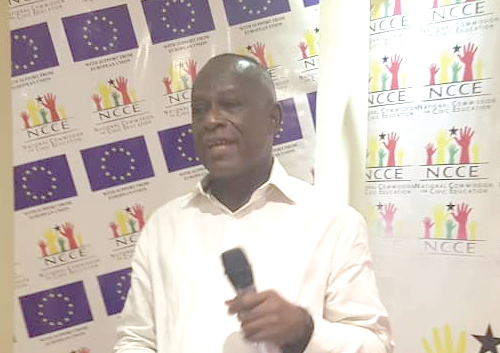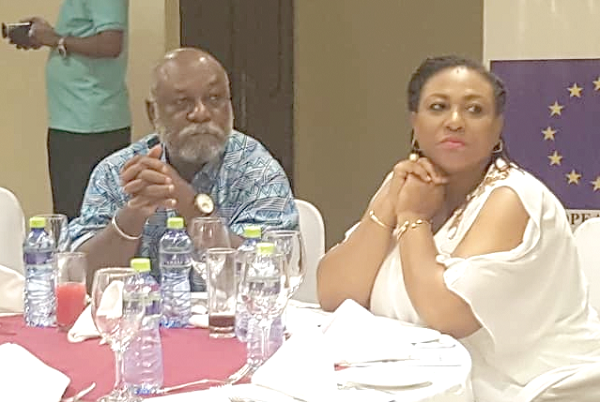
Mount pressure on govt to fund governance institutions — Stakeholders
Stakeholders at a forum for senior media practitioners in Accra have called for pressure to be mounted on the government to adequately fund all the four governance institutions to help them play their pivotal roles in society.
The governance institutions are the National Commission for Civic Education (NCCE), Electoral Commission (EC), National Media Commission (NMC) and the Commission of Human Rights and Administrative Justic (CHRAJ).
Advertisement
At the forum organised by the NCCE as part of this year’s ‘Constitution Week’, the stakeholders were of the view that various governments, and for that matter various political leaderships, deliberate attempts to stifle the governance institutions with funding were attempts to undermine the country’s fledgling democracy.
NCCE and public education
The NCCE is one of the independent governance institutions (IGIs) provided for by the 1992 Constitution and created by an act of Parliament.
The Commission makes civic and public education an important strategy for creating awareness of the main values of democratic governance, instilling the spirit of patriotism and enhancing citizens participation in governance.

Leading discussions
Leading the discussion at the forum, a former Chairman of the NMC, Ambassador Kabral Blay-Amihere, called on the NCCE to use the Constitution Week to focus and reflect on their role under the current democratic dispensation.
That, Ambassador Blay-Amihere said, would enable the commission to continue to play its all important role as a key governance institution.
He also called on the media to support governance institutions, such as the NCCE, to play its role and not become footnote of the ambitions of politicians.
Sacrifices
He said the media should also know where they were coming from and the sacrifices their predecessors, such as Tommy Thompson and Radio Eye, made as well as the domestication of the state media in order to help them safeguard media freedom.
The Chairperson of the NCCE, Ms Josephine Nkrumah, said she was of the view that it was not enough to ask development partners to fund civic competences.
“The time is now to ask whether we need civic education in our governance system. For me, the issue of development partner is a good thing but when it ends, what are the exit plans?” she asked.
She argued that the most important thing was for the development partners to complement what government was doing to support the NCCE.
Ms Nkrumah said for the NCCE to be an effective governance institution, there was the need to fund it adequately.
She called on the media to help the NCCE to play its advocacy role effectively by partnering it in its mass public education.
The Chairman of the NMC, Nana Kwasi Gyan-Appenteng, did not mince words in stressing that it was imperative for government to address the funding challenges of the four governance institutions.
He expressed with disquiet that since the beginning of democracy in the Fourth Republic, government upon government had undermined the governance institutions by under-funding them.
“After 60 years of independence, we should not beg donor partners to fund democracy,” he stated.
Governance institutions
The Board Chairman of the Graphic Communications Group Limited (GCGL), Professor Kwame Karikari, stated that as part of comprehensive measures to address the funding challenges facing the governance institutions, there was the need to cut down completely on profligate spending.
He said money saved could be channelled to meet some of the funding needs of the governance institutions.
The Political Editor of the Daily Graphic, Mr Kobby Asmah, suggested the need for the NCCE to step up its advocacy role on the reintroduction of civic education from basic schools to the tertiary levels across the country.
When implemented and possibly made examinable across all levels, he explained, it would help to inculcate civic responsibilities, awareness and competences among the citizenry.
Mr Asmah stated that by placing premium on the basic schools, the Commission could realistically achieve its constitutional mandate of creating the needed awareness of the main values of democratic governance, instilling the spirit of patriotism and enhancing citizens participation in governance.
Some of the discussants were of the view that “if the NCCE is to remain relevant, it must also complement government’s scanty funding and source its own funding to execute its mandate.”
Also at the forum were the Dean of the Communication School, Legon, Ms Audrey Gadzekpo, and some Commission members of the NCCE.



